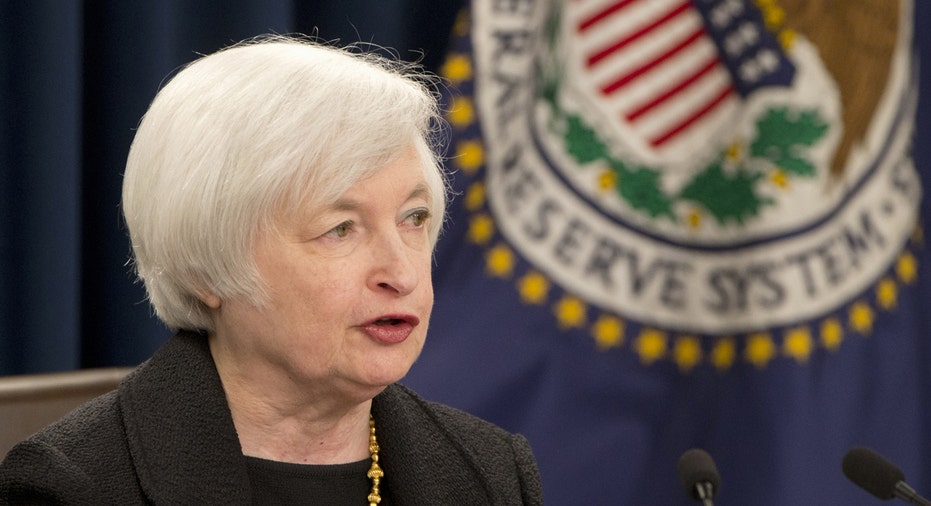The Fed - Friend and Foe to Baby Boomers

In her press conference following the latest FOMC meeting, Fed chair Janet Yellen said interest rates could increase only if inflation rises from current levels of about zero percent to the Fed’s target rate of 2% and if unemployment rates are lower. So will the impending increase linger into 2016 or will there be a rate hike in October or December, at the two remaining FOMC meetings this year?
If U.S. policymakers raise interest rates this year, baby boomers portfolios could see higher returns on their investments but buying a house or a new car could mean you will be paying more.
I had a chance to speak with Antwone Harris, CFP®, senior financial consultant at Charles Schwab (NASDAQ:SCHW) and he offered the following tips on what boomers need to know when and if rates rise.
Boomer: What are interest rates and why do they change?
Harris: Interest rates represent the cost of money -- it is the price one pays to borrow money and the payment one receives for lending money. Short-term interest rates are controlled by the Federal Reserve, while longer term rates are impacted by a variety of market forces. During times of economic stress, the Fed typically lowers the Federal funds rate, the benchmark interest rate that banks charge each other to borrow Federal funds overnight. On the other hand, the Fed can also raise the Fed funds rate if an economy is growing too quickly or in times of rampant inflation.
Following the financial crisis, the Fed lowered the Fed funds rate in 2008. That same interest rate is used to determine a variety of other short-term rates that touch us all in our daily finances such as interest on bank deposits, loans, credit cards and adjustable rate mortgages. Lower rates tend to promote economic growth since they incentivize consumers to borrow money to make major purchases like homes and cars and reduce the cost of starting or growing a business. Now that the economy has been recovering, the Fed is looking to normalize interest rates.
Boomer: Will a rise in interest rates affect my retirement plan?
Harris: Given that interest rates have been held near zero since 2008, an increase will be good for savers. As rates rise, savers can look forward to eventual better returns on money in savings accounts, and short-term CD rates should also begin to go up. That can be especially good news for retirees who have been struggling with near zero returns on their cash. A key problem that savers and people in retirement can face in a low rate environment is the need to potentially be in riskier investment vehicles to get a more attractive return on their money.
Investors planning for retirement may have the opportunity to increase monthly income streams through the various investments that make up their portfolio like stocks, bonds, annuities, etc. Investors should also review any outstanding or upcoming loans, as rising rates will increase borrowing costs as well.
The assumptions used in a retirement plan might be impacted with rising rates, so it may make sense for people to review their financial plan and make sure it’s updated with the appropriate expectations.
Investment portfolios may experience increased volatility in the short term. Some fixed income investments may lose value and some other income producing investments may be impacted as well.
Finally, keep in mind that the rise in interest rates will be a slow cycle, so stay focused on the long-term and avoid short-term noise and distractions.
Boomer: Feds are predicting a definite rise in interest rates in the near future. What can Baby Boomers do to prepare for the upcoming anticipated rate increase?
Harris: Baby boomers are likely near or in retirement. With that in mind, Baby Boomers should keep an appropriate cash buffer so that they can weather any short term volatility and not be forced to sell investments at fire sale prices just to meet their living expenses. We recommend keeping up to two years of living expenses in cash. That amount should be reviewed with your financial planner and may be reduced based upon the other income streams that are available to a client like social security, pensions and annuities.
Baby Boomers approaching retirement or retirees should also consider how they are getting their fixed income exposure. Investments like bond mutual funds do not have a maturity date so there is no definite date when an investor is guaranteed to have their principal returned. Investors may consider owning a diversified pool of individual bonds that are laddered with a bond maturing each year. This helps investors get all of their money back at maturity provided that the bond does not default and unused proceeds can be reinvested at prevailing higher rates.
Finally, boomers in or near retirement should also evaluate their floating rate debt exposure like adjustable rate mortgages, home equity lines of credit, and margin loans. It may make sense to pay off or restructure these obligations before interest rates increase.
Boomer: What are the benefits and drawbacks of an increase in interest rates?
Harris: Savers should receive higher payments on savings accounts, bonds, annuities and other income producing instruments. But borrowers should brace for higher costs. For example, a one percent increase in interest rates can increase the cost of a $100,000 mortgage by over $700 a year. Home equity lines of credit will also rise, as well as other loans, whether you’re financing a new car or carrying a balance on your credit card.
Investors may also experience some short-term volatility across all their investments.
But overall, it is important to remember that when the Fed does hike rates, the cycle will likely be slow. For long-term investors, which most of us are, it’s important to stay focused on the longer term and not be too distracted by shorter term events.



















